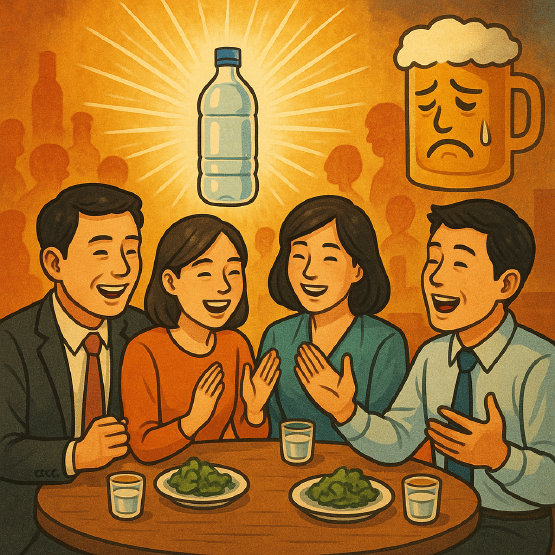The social trends driving changes in the company dinner culture
Corporate Dining Culture in South Korea
Company dinners and drinking gatherings have been an important cultural mechanism in Korean society for a long time, forming bonds within organizations and strengthening relationships within the hierarchy. These gatherings have functioned as symbolic spaces that elevate a sense of community and build trust between superiors and subordinates, going beyond just being occasions for drinking. Especially for the industrial generation of the past, company dinners were the essence of organizational culture and an indispensable practice for fostering camaraderie and cohesion.
Current Changes and Their Background
However, we are currently witnessing a transitional period in which this tradition is facing fundamental challenges. In particular, perceptions of company gatherings have significantly changed, especially among those in their 2030s, with participation rates and acceptance notably decreasing. At the heart of this shift are the spread of individualistic values and the rapid advancement of digital technology.
The impact of digital technology
The emergence of smartphones, social media, and online communities has created an environment where communication is possible without the constraints of time and space, which is gradually replacing offline-centric ways of forming relationships. Today, many people engage in sincere conversations online, or form communities centered around hobbies and interests, even without the need for social drinking. Non-alcoholic gatherings and the 'zero drinking culture' have established themselves as a new social trend that goes beyond mere trends.
Essential Changes in Relationships
This change is not just a matter of form. It is also a movement that redefines the way of relationships and, further, the essence of those relationships. In a culture that values autonomy over coercion and respect over control, people no longer desire 'mandatory intimacy.' They prioritize a few true connections and wish to engage with others while maintaining the rhythm of their own lives. This can be seen as an expansion of social sensitivity that respects individual mental and physical health.
The Generational Perception Gap
At the same time, the gap in perceptions between generations is also being revealed. In the past, hierarchical relationships based on age and position provided structural stability to organizations and society, but now horizontal and mutually cooperative relationships are becoming the new norm. In particular, younger generations prefer communication over authority and consultation over commands, which is bringing significant changes to leadership models within organizations. Decision-making is increasingly being conducted in an open and participatory manner, and in the process, the agency and responsibility of members are actually being strengthened.
The necessity of reconstructing tradition
We need to recognize that this change is a reconstruction rather than a collapse of tradition. The transition from 'form' to 'content,' from 'force' to 'choice,' and from 'hierarchy' to 'solidarity' opens up new social possibilities. A community centered on understanding and empathy possesses the strength to embrace diversity and differences, which in turn signifies an evolution towards a healthier and more sustainable society.
Future of Corporate Dining Culture
The future culture of company gatherings may not completely reject the past but can be reorganized in accordance with contemporary sensibilities after reflecting on its values and limitations. The sense of community and bonding inherent in traditional gatherings is still valuable. It is just that the methods and expressions will change. When the gatherings shift from drinking to conversation, from coercion to empathy, and from a hierarchical structure to mutual respect, they can be reborn as a culture with deeper meaning and value.
Trends in Structural Innovation
The changes we are facing now are not a temporary trend, but a flow of structural innovation. And the direction of this change is clear. Rather than being complacent with past ways, it is about understanding and connecting with each other in new ways within a community. In that space, we can establish more meaningful relationships, and furthermore, move towards a society imbued with true trust and respect. The important thing is to actively participate in this journey of change, and for each of us to become agents in reconstructing not only the ways of relationships but also the meaning of relationships.

Post a Comment